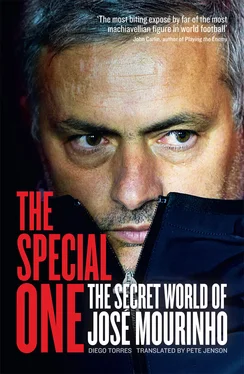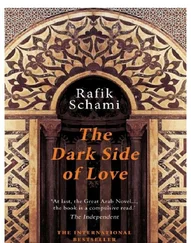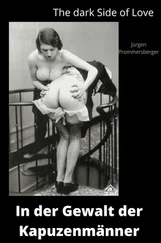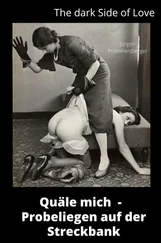Soriano describes the decisive moment: ‘After going through all the coaches that Txiki had examined, the conclusion was that it came down to two. In the end there was a meeting in which it was decided that it would be Guardiola, based on certain criteria.
‘We had put together a presentation and produced a document: what are the criteria for choosing the coach? It was clear that Mourinho was a great coach but we thought Guardiola would be even better. There was the important issue of knowledge of the club. Mourinho had it, but Guardiola had more of it, and he enjoyed a greater affinity with the club. Mourinho is a winner, but in order to win he generates a level of tension that becomes a problem. It’s a problem he chooses … It’s positive tension, but we didn’t want it. Mourinho has generated this tension at Chelsea, at Inter, at Madrid, everywhere. It’s his management style.’
In his book The Ball Doesn’t Go In By Chance , published in 2010, Soriano details the principles that led the club to choose Guardiola: 1. Respects the sports-management model and the role of the technical director; 2. Playing style; 3. Values to promote in the first team, with special attention to the development of young players; 4. Training and performance; 5. Proactive management of the dressing room; 6. Other responsibilities with, and commitments to, the club, including maintaining a conservative profile and avoiding overuse of the media; 7. Has experience as a player and coach at the highest level; 8. Supports the good governance of the club; 9. Knowledge of the Spanish league, the club and European competition.
Guardiola did not meet the seventh criterion, but then neither did Mourinho. What is more it was very unlikely, given past behaviour, that Mourinho could do the job without violating the second, third, sixth and eighth criteria.
The naming of Pep Guardiola as the Barça coach on 29 May 2008 marked Spanish football’s drift towards politicisation. This was paradoxical because Guardiola, one of the coaches most obsessed with the technical details of the game, an empiricist whose strength lay in his work on the pitch, began to be perceived by a certain section of Madrid supporters as an agitator, a manipulative communicator whose propaganda needed to be countered off the pitch. Distracted by this misconception, Madrid would expend much of its institutional energy on taking the necessary steps to wage war in the media.
While Guardiola started an epic landslide that would transform football across half the planet and contribute to reinforcing Spain’s national team as it conquered the world in 2010, institutional and social peace at Madrid became ever more scarce. Calderón, who hired Bernd Schuster, resigned a year and a half later amid accusations of corruption. Florentino Pérez, returning to the presidency in 2009, prompted a criminal investigation that led only to a ruling that Calderón had been the victim of slander and that he was not corrupt.
The return of Pérez to the Bernabéu signalled major changes. The president of the multinational construction firm ACS possessed an incomparable combination of determination and influence. In 2010 Forbes classified his fortune as the tenth largest in Spain. His origins, however, conform more to the petty bourgeoisie. A graduate of Madrid’s School of Civil Engineering, he formed part of a line of technocrats who have nurtured Spanish administration over the last two centuries. Affiliated to the Union of the Democratic Centre (UCD), he entered politics in 1979, becoming a Madrid councillor, director general of the Ministry for Transport and Tourism, and undersecretary at the Ministry of Agriculture between 1979 and 1982. In 1986 he abandoned politics to begin a career in the private sector.
Unorthodox and adventurous in the management of sporting affairs, Pérez’s reputation was being increasingly challenged by his followers. Madrid had followed a downward trajectory under his direction between 2000 and 2006. From the initial peak of winning two league titles and a Champions League, the club had stagnated. After three years of failing to win a trophy, he handed in his resignation in February 2006, claiming that he had indulged his players like spoiled children and that it was necessary to install another helmsman, who, without the same sentimental attachment, would be capable of purging the dressing room. Never before in Madrid’s history had a president resigned in the middle of his mandate. But with a stubbornness to regain control of the directors’ box, and an avowed sense of mission, he returned to the club in 2009, although he was not chosen by members because the absence of any other candidates meant there was no election. He was 62 years old and assured supporters that, thanks to his intervention, Madrid had been saved from administrative crisis and financial ruin.
Back in power, Pérez set about hiring a new coach. He began the selection process advised by his right-hand man, the sporting director Jorge Valdano. After failed attempts to sign first Arsène Wenger and then Carlo Ancelotti, Pérez signed Manuel Pellegrini. The Chilean’s switch to Chamartín was preceded by suspicion and disaffection. He had still not completed half a season as first-team coach, and the idea of signing Mourinho was occupying Sánchez’s mind more than ever. The operation had been thought through over a period of several years and he was now close to convincing the president to take the plunge. In meetings with friends the director general sighed: ‘I love him!’
Valdano, however, insisted on protecting Pellegrini. The coach had been the subject of a smear campaign in the press, encouraged from within the club. During internal debates Sánchez identified Pellegrini as being inherently weak and too fragile to resist the rigours of the Madrid job. To convince Pérez, the director general reasoned, ‘Pellegrini needs protection because he’s weak. A strong man would not need protection.’
Sánchez took a two-pronged approach. He maintained contact with Mendes and he established a direct line of communication between the Inter coach and Pérez. When some raised suspicions over the suitability of Mourinho’s technical footballing knowledge to the Madrid team, Sánchez confessed that he believed Mourinho’s personality alone would make him worthy of a blockbuster production, while producing statistics to support his technical expertise.
‘I don’t know how much he knows about football,’ he said, ‘but a man who’s not lost a home game in six years must have something. Six years without losing in his own stadium! If he doesn’t know anything about football then he must know a lot about human beings. In his last game for Chelsea both Terry and Lampard ran to embrace him. That’s just not normal. Both of the team’s leaders!’
Sánchez is the mastermind behind the project that, between 2000 and 2007, turned Madrid into the richest football institution on the planet. His keen sense of humour co-exists with his zeal for his position. On one occasion in 2010 he presented himself in the following written terms: ‘I have been an executive director general for the last five years. Before that I was marketing director general for five years. My responsibility is corporate: the administration, the management, the resources, the facilities and infrastructure of the club, the general services, the purchasing, the information systems and technology, the human resources, the commercial and marketing department, areas of content, internal media, use of facilities, sponsors, etc. I am responsible for 141 of the 190 employees at the club. I am responsible for the economic results, the accounts, etc. I direct the club in these areas and take a certain pride that for six years we have topped the income ranking, including in the bad years or through periods of institutional crisis. I have negotiated the signings and the sales made by the club over the last 10 years … maybe 70 transactions in total. I negotiate the players’ contracts, the tours, the TV rights. I represent the club in the LFP (Professional Football League) and in the relevant international bodies. I have a certain disregard for the role of protagonist; I would even say I resent it … I have worked with different presidents, something that is significant in itself. In this transition (certainly an unusual experience in football) you make many friends, from Platini to Rummenigge, from Galliani to Raúl, from the president of Volkswagen to Tebas through to Roures, or a government minister, many businessmen, and football agents … That expanse of contacts just a phone call away is one of the strengths of the club.’
Читать дальше












